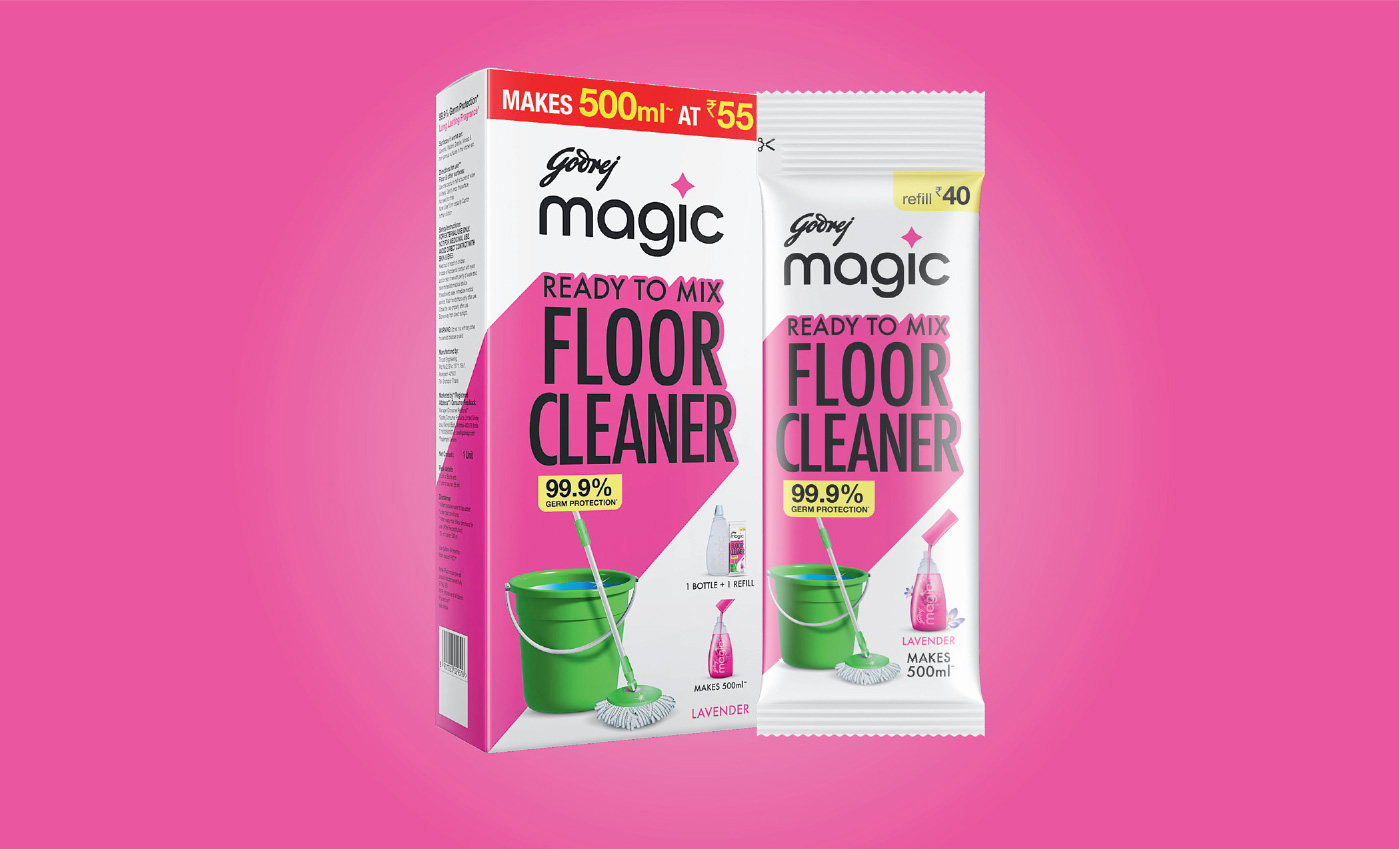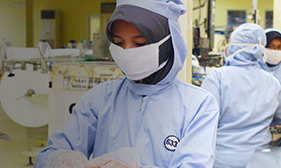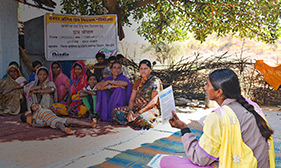A Letter to
Our Shareholders
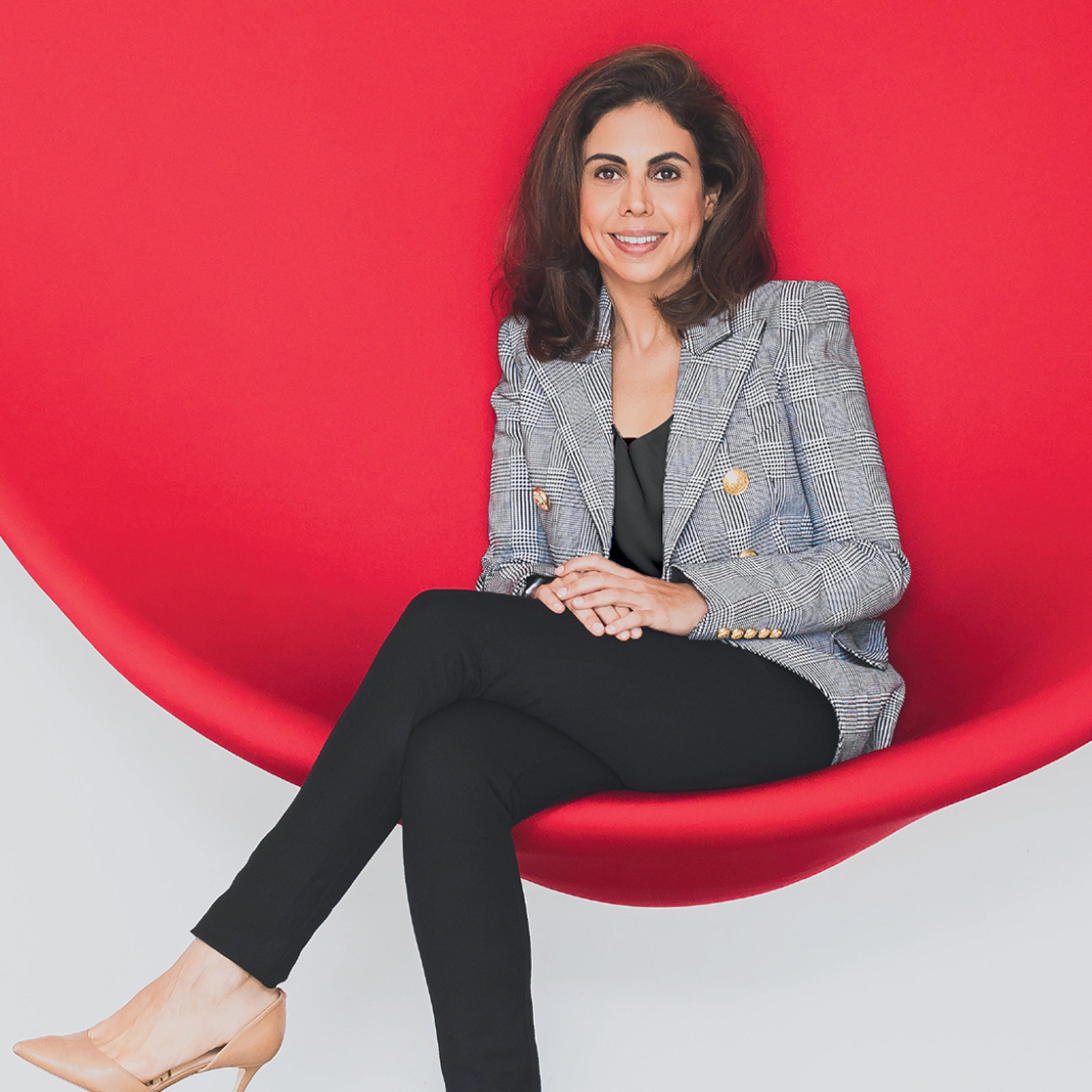
Dear shareholders,
Thank you for your continued belief in GCPL and taking the time to read this note.
I am pleased to share with you that your company delivered a good performance in fiscal year 2023-24. Consolidated reported revenue growth was 6%. Consolidated EBITDA for the year grew by 21%. Organic volume growth for the year was 7% for the consolidated business, with growth in India and Indonesia at 6% and 11%, respectively.
What excites me, though, is the time we spent on a sharply thought through and well executed plan for strategic transformation that will fuel the next few decades of growth. I am grateful to Sudhir for the bold ambition in our Vision 2040 and how he and our leadership team are very deliberately, through the 'power of backcasting’, working backwards from that vision to create the building blocks needed today.
Our organic expansion of Liquid Detergents with the new Godrej Fab, and the inorganic entry into Deodorants and Perfumes with Park Avenue and Kamasutra, for example, set us up to play in what will be among the biggest categories in India in 2040. Our multi-year efforts to expand the Total Addressable Market (TAM) we want to serve in India in the decades ahead, are also aimed at this.
I am particularly proud that we have set up the Godrej DEI (Diversity, Equity and Inclusion) Lab under the leadership of Parmesh Shahani and are doubling down on our commitment to making Godrej a truly inclusive community where people thrive. The Lab empowers inclusion within the Group, helps build DEI ecosystems across corporate India, and aims to bring ideas and innovation related to DEI to the mainstream.
Over the last year, Parmesh and the team have provided strategic DEI guidance to our Group businesses, including GCPL, and facilitated enhanced internal collaborations and communication. They have set up a Group DEI advisory council, conduct quarterly DEI updates and oversee the DEI scorecards of businesses.
As I do every year, I would like to share my perspectives on what could have been better, what went well and what we need to do going forward.
Parmesh Shahani and the Godrej DEI Lab team are empowering
inclusion ecosystems both within and outside Godrej
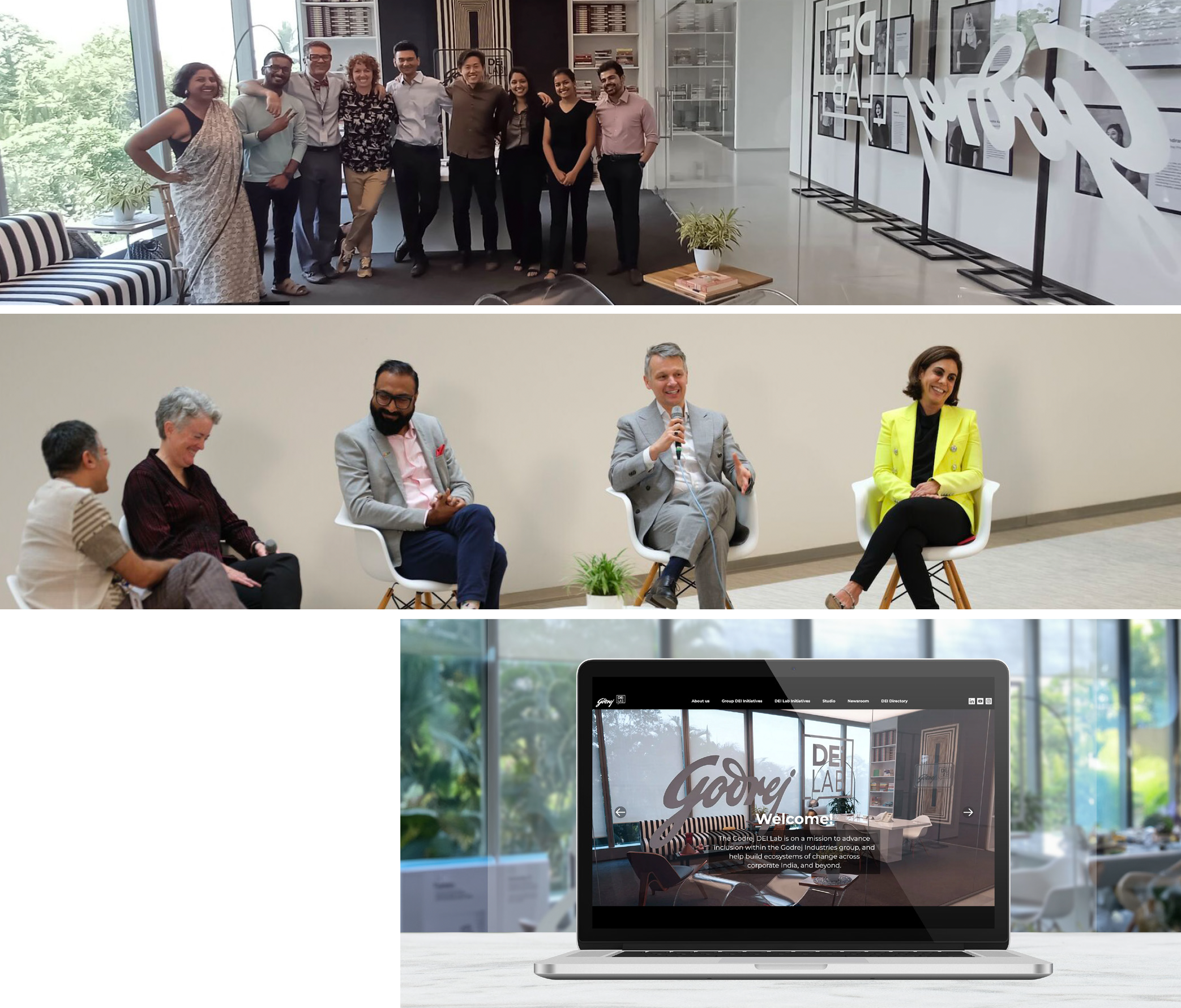

Visit the Godrej DEI Lab website to learn more about how they are partnering both within and outside Godrej to create a world where everyone can flourish
Spending time across our global markets in India, Indonesia, and Africa,
engaging with our team members, consumers, vendors, and partners.

What could have
been better
Category development is at the heart of our strategy and the consistent efforts towards this are showing in increased penetration and consumption. However, we need to get some of our large, profitable brands like HIT and Ezee in India, Stella in Indonesia and Inecto in Africa, really firing at their potential more consistently.
Sustainability is core to our strategy and operating model, and we are embedding it across various aspects of our business, but we aren’t doing enough. Our Environmental, Social and Governance (ESG) scores on key indexes don’t reflect the shifts we should have been making.
Three of our Group companies are in the global leadership league for climate action/ESG in their respective industries, but GCPL is not. We must fix this in the year ahead. While our Board is gender balanced and so is our overall company, our track record on senior leadership is not good. Our most senior women representation has actually fallen 900 basis points in the last couple of years to 20%.
What went well
Household Insecticides is our most purposeful and our most profitable category. In the last few years, we have faced growth challenges in the category in India, but this year could end up being a gamechanger. I am very excited about the introduction of Renofluthrin (RNF), which is 2x more effective than any other registered molecule. GCPL has exclusive access to it in the medium term and that gives us a very powerful competitive edge to serve our consumers well.
We have also launched Goodknight Agarbatti in India with this molecule and are well positioned to formalise the illegal incense sticks market. The real potential for consumer delight will come once we introduce this new molecule to our liquid vaporisers and drive penetration. With the impact of climate change, we are seeing a steady increase in dengue cases over the last 15 years. In Latin America, this has risen from around half a million to six million cases this year. The opportunity to serve consumer needs in this category is only deepening.
In our Africa, USA and Middle East cluster and the Latin America businesses, we are making significant moves to improve longer term profitability. In East Africa, we have restructured the business model. In Nigeria, we are restructuring our distribution model and rebalancing the portfolio through FMCG. In the Americas, we are improving margins by outsourcing manufacturing.
The growth of HIT in Indonesia is a great example of the power of our multi-pronged approach to category development. We changed the formula to make it more efficacious, improved perfume, scaled up the liquid vaporiser format and refreshed packaging. Media spends increased by 1.5x in the last year, ensuring we built relevance for the brand. Access packs are driving penetration and we have reached close to one million households through trials. I am also happy to see brands like Godrej Aer in India and Darling Ombre Braids in South Africa show consistent multi-year growth and category development.
Ramping up availability is the next big step. On a trip to rural Madhya Pradesh, I had the chance to see firsthand the kind of impact that our rural van operations programme, Project Vistaar, is having. It is the largest of its kind in India and is aimed at doubling our rural coverage. We are backing this up with a digital backend revolution to track and improve the effectiveness of sales people.
Understanding the impact of our van
distribution programme, Project Vistaar,
on a trip to rural Madhya Pradesh
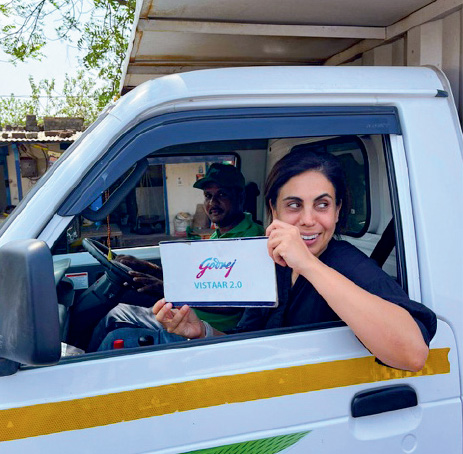
The new Goodknight Agarbatti
with the RNF molecule India
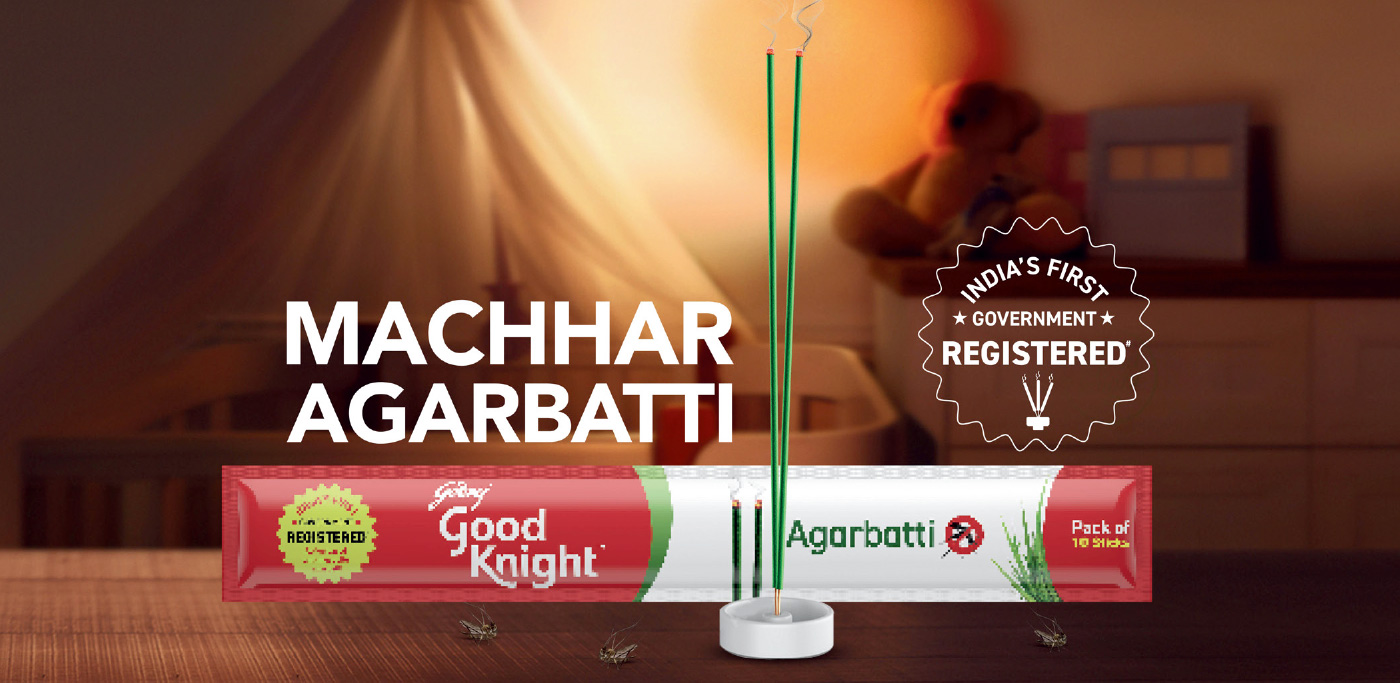
HIT aerosol in Indonesia, following the multi-pronged efforts
by Rajesh Sethuraman and the Indonesia team
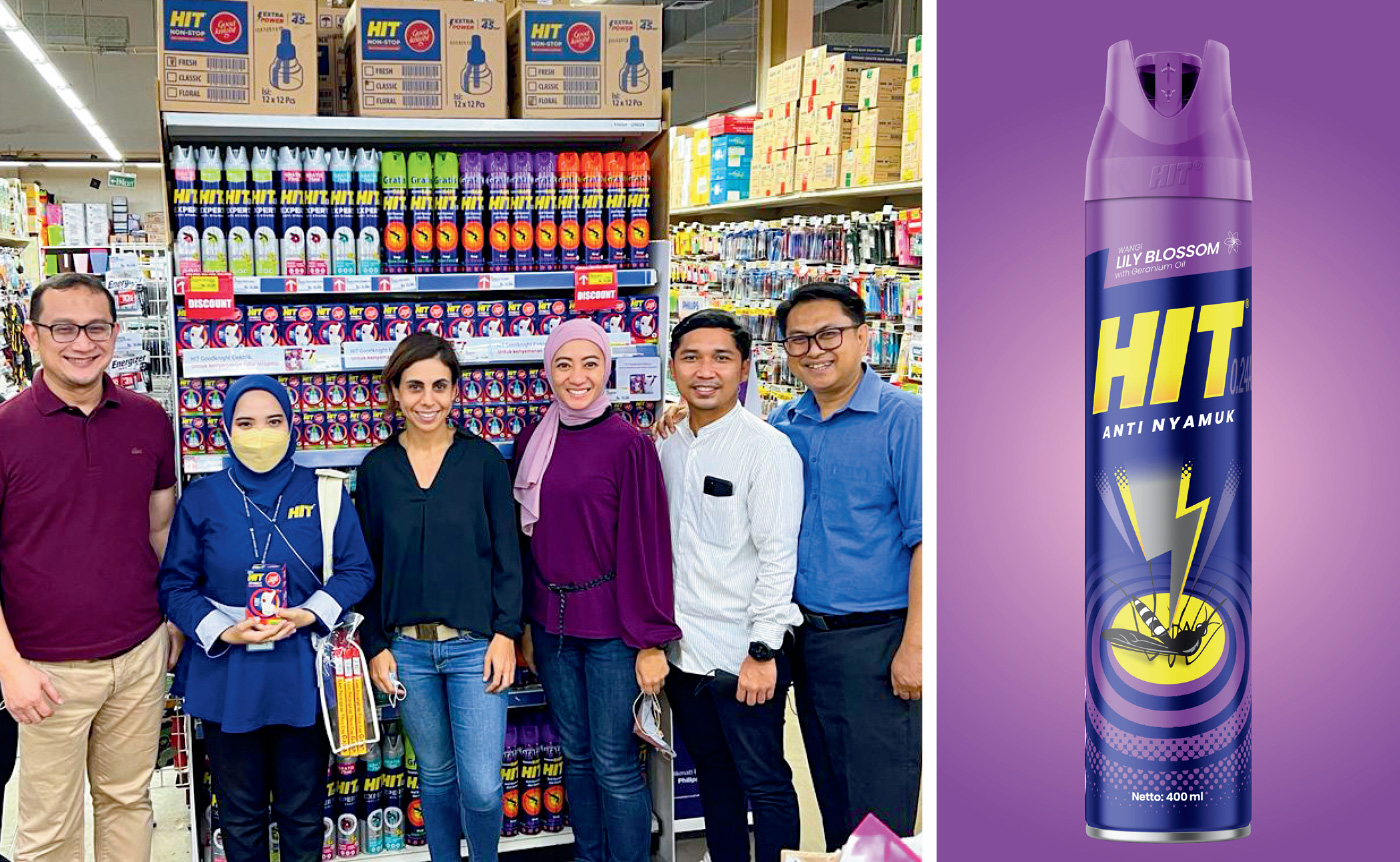
Building the digital backbone for our sales and distribution strategy;
improving effectiveness of our sales team members across India
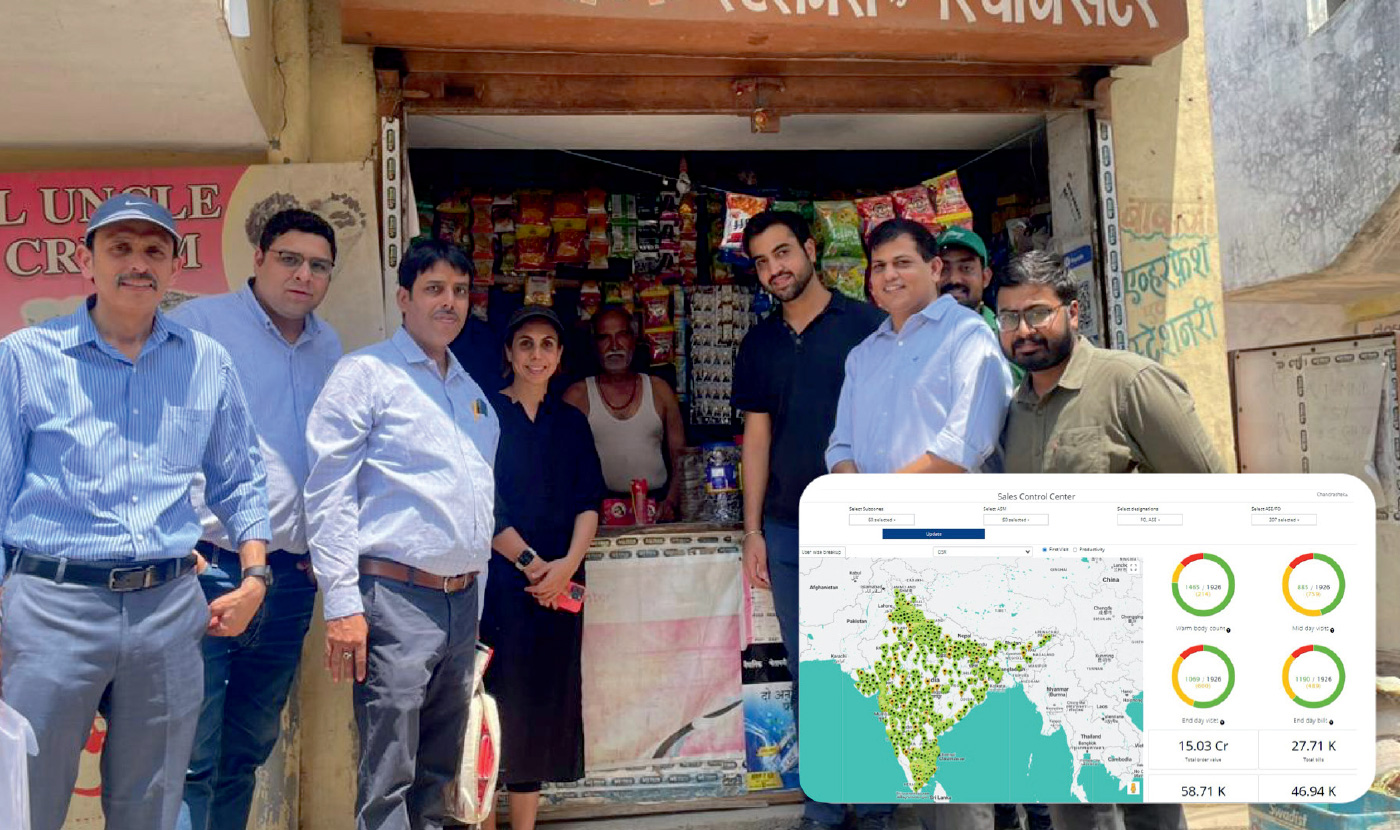
Spending time with the amazing women at the
Godrej ki Shakti event in our Malanpur factory
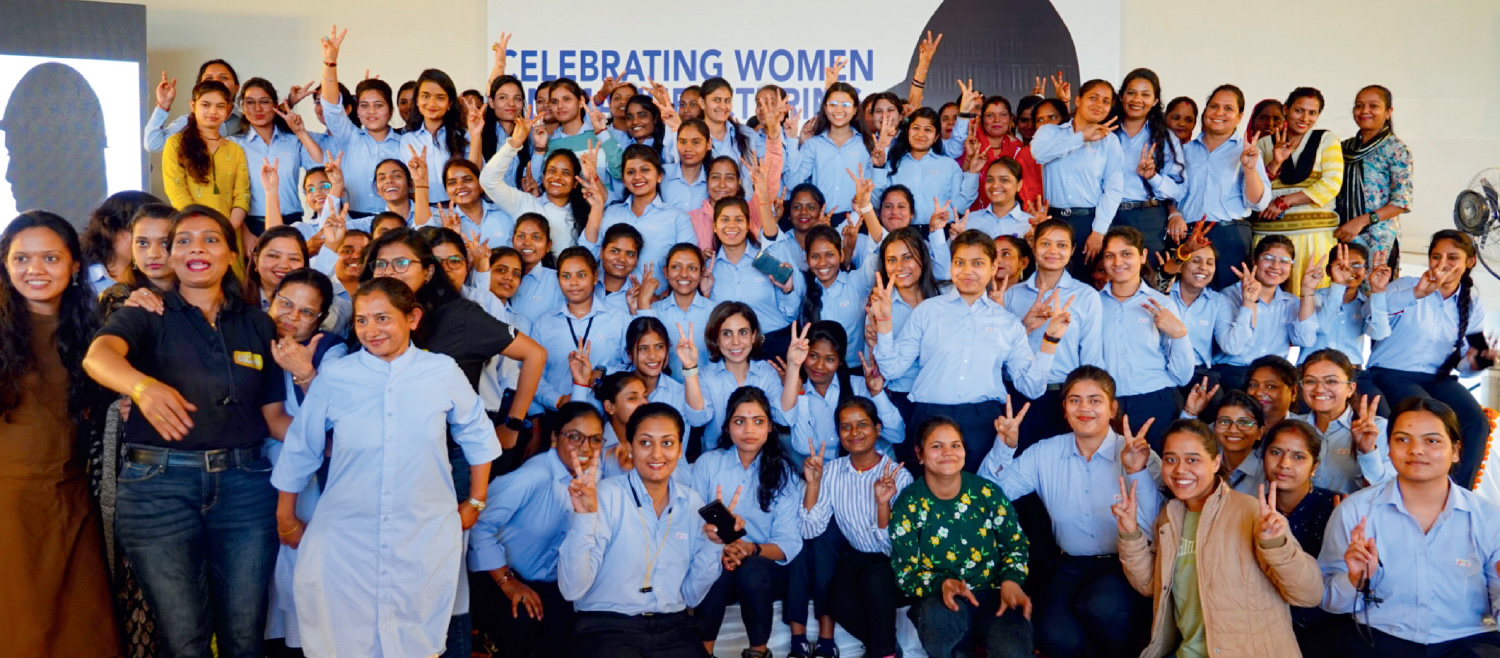
What do we
need to do now?
As we build towards 2040, the two most important tasks for your company in the year ahead are driving double-digit growth in Household Insecticides in India, and significantly improving EBITDA margins in Africa and showing a positive PAT.
We are doubling down on our investments in our R&D and Design teams which are the fulcrum and key differentiator of GCPL’s ability to be innovative and serve our consumers well. This, together with the organic growth that we are targeting from more of our large brands through working media investments, sets us up well for the year ahead and beyond.
Becoming more diverse and inclusive to represent the global consumers and communities we serve is critical to achieve our growth ambitions. It is particularly important to me that we nurture leaders who lean into our values and use their corners of the world to manifest a Godrej that is stronger and better for the future. We are fortunate to have many of them. Together, we have made progress in improving the representation of diverse and under-represented groups at GCPL, but there is lots more to do. Recently, as a Group, we announced a comprehensive refresh to all caregiving people policies: self-care, childcare and elder care. This included a move to cover healthcare for transgender members more comprehensively than before.
One of my favourite days this year was spending time with the women team members at our Malanpur factory in March. At the ‘Godrej ki Shakti’ (the strength of Godrej) event, we invited all women at the plant and their families to celebrate the role of women in manufacturing and emphasise the importance of family allyship in making this possible. We are investing in expanding capacity at Malanpur, also among Asia’s largest soap manufacturing units, to make the operations truly world class. Ensuring this goes hand-in-hand with our inclusion and sustainability agendas is key. We are also translating this commitment to our newest factory. We have signed a Memorandum of Understanding (MoU) with the Government of Tamil Nadu to invest INR 515 crore in a state-of-the-art manufacturing facility near Chennai.
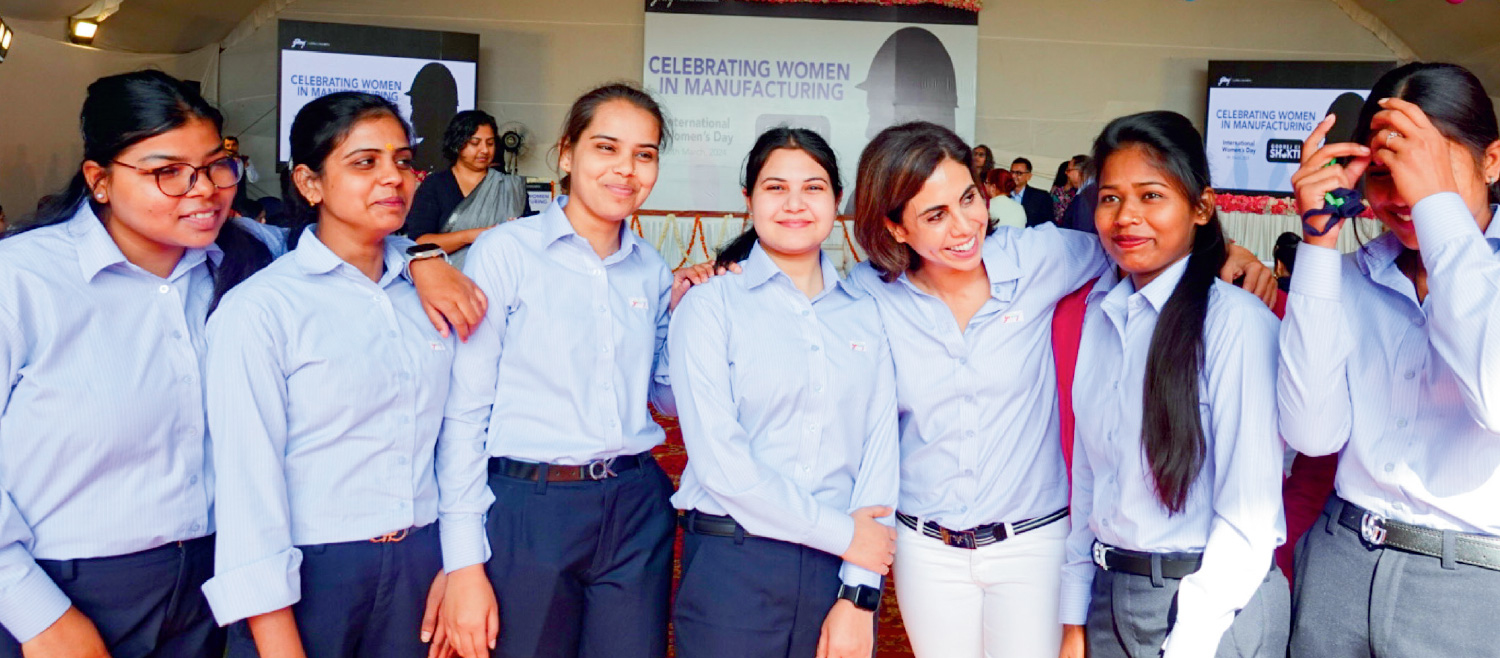
Our ambition is to develop this new factory as a ‘lighthouse’ for other manufacturing units; with an inclusive and gender-balanced workforce and following Industry 4.0 and environmentally responsible practices. Here, we plan to employ at least 50% women and a minimum of 5% members from LGBTQIA+ and Persons with Disabilities (PWD) communities.
Sustainability is core to our strategy. We are designing how we do business to drive sustainable growth while tackling the greatest challenges of our times – climate change, inequality and nature loss. Our Good & Green vision 2025 is aligned with the Paris Agreement goal of limiting global warming to below 1.5 degrees Celsius and the World Business Council for Sustainable Development pathways that tie with the UN’s Sustainable Development Goals.
The ESG Committee at our Board of Directors oversees our progress and provides direction to our vision.
We continue to scale our Elimination of Mosquito Borne Endemic Diseases (EMBED) programme. It runs in four Indian states, and, since 2015, has helped 5,225 villages become malaria-free and reduce malaria cases by 80% in 11 districts. We are now addressing dengue and chikungunya in 11 cities, with a 65% reduction in the number of cases.
Through waste management and plastics programmes, we recycled 7,287 MT of waste; 3x more than what we achieved last year. We also partner local authorities to strengthen waste management systems and invest in the well-being of waste workers.
We are on track with our net-zero by 2035 ambition and have strong plans going forward to strengthen our renewable energy portfolio.
Our commitment to putting people and planet alongside profit is showcased in our growing reconstitution portfolio which I am personally very passionate about. This will not only help democratise access to health and hygiene products, but also provide a ‘Green Discount’ to our consumers. I think it is a western idea to believe that we should just remove a bit of plastic and a bit of sugar from our products to meet goals. That doesn’t work. We need to fundamentally rethink our approach.
At the signing of the MoU with the Government of Tamil Nadu to build our lighthouse factory
near Chennai, when I presented the Chief Minister of Tamil Nadu, MK Stalin, with a copy of the
book ‘Queeristan’, authored by Parmesh Shahani, Head of the Godrej DEI Lab
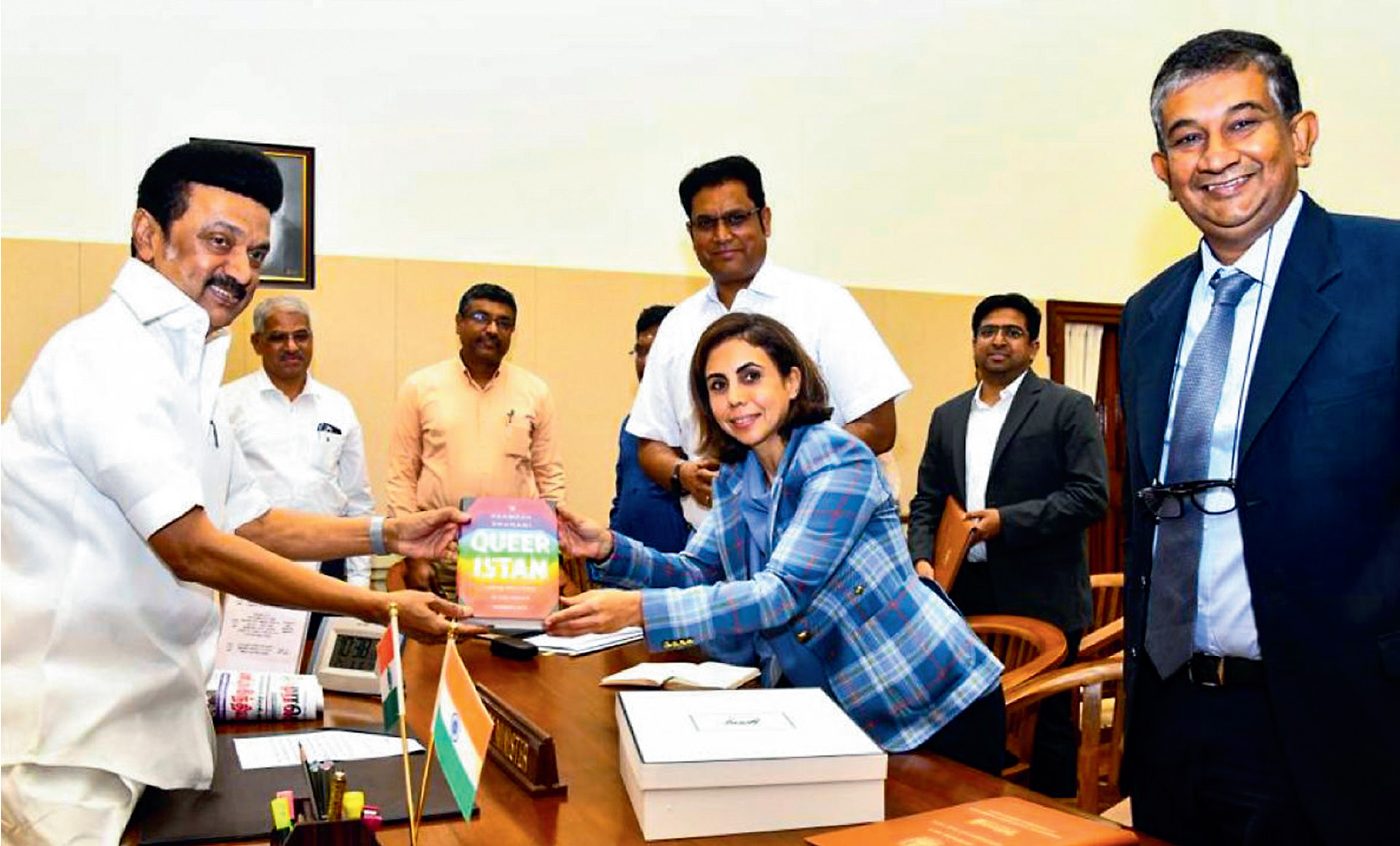
Compared to traditional cleaners, it uses 94% less plastic and 72% less paper in its packaging. Its compact gel-based sachets allow more units per truck, reducing transportation and emissions and lowering our environmental impact. This is what emerging market companies like ours need to be excellent at.
On behalf of the GCPL Board and Management Committee, I want to take this opportunity to express our deep gratitude to our amazing team members across the globe, whose passion and values-led leadership allows us to serve our consumers and communities so meaningfully.
To all our customers, business partners, shareholders, investors, and communities, we greatly value your trusted partnership. We will continue to count on your support as we build forward towards what I believe are the best years at your company.

Nisaba Godrej
Our reconstituted product portfolio of
Magic Floor Cleaner uses 94% less plastic
and 72% less paper in its packaging.
